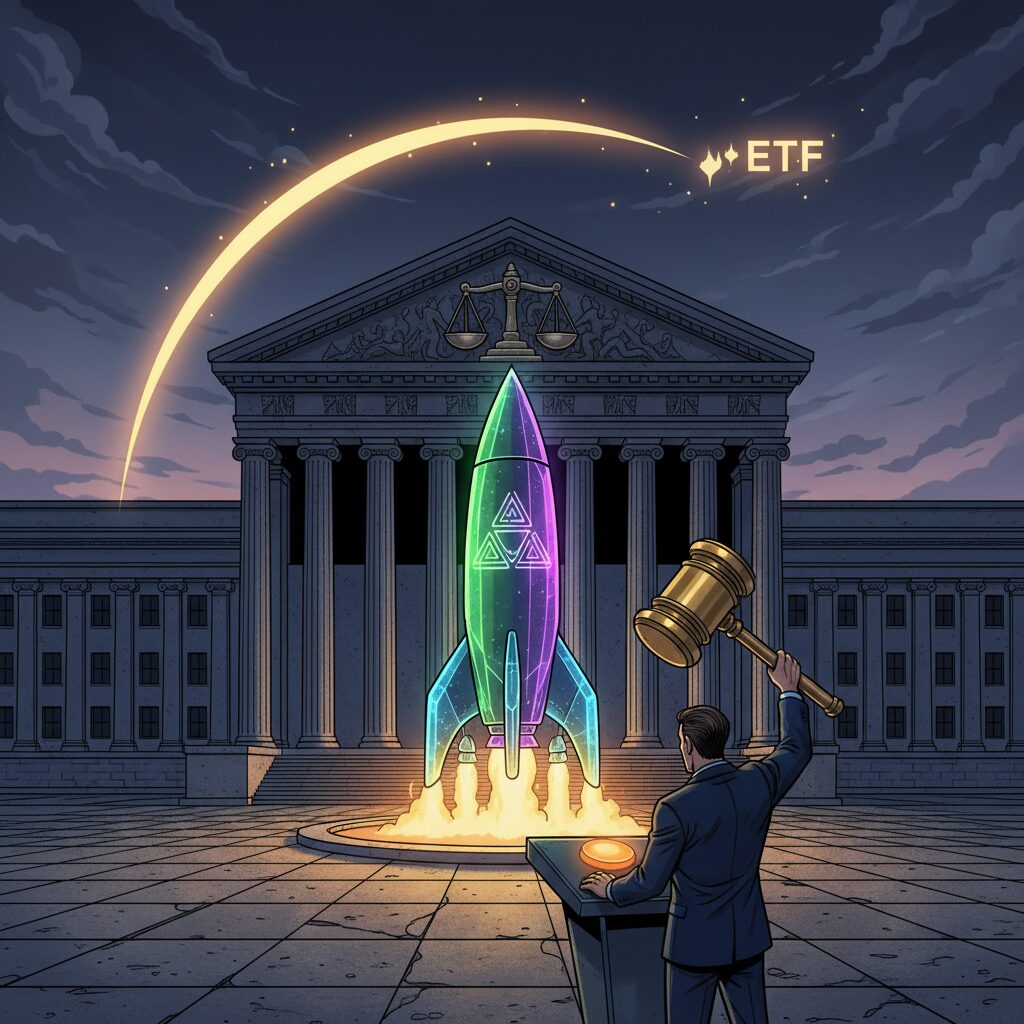Marinade Finance: A Core Protocol for Solana Staking

Launched in 2021, Marinade Finance has established itself as a key protocol within the Solana ecosystem for decentralized finance (DeFi). The platform provides an innovative approach to staking that focuses on flexibility, accessibility, and strengthening the overall security of the Solana blockchain through decentralization.
What is Marinade Finance?
At its core, Marinade Finance is a liquid staking protocol built on Solana. It allows users to stake their SOL tokens to help secure the network and earn rewards without locking up their assets. Instead of forfeiting access to their capital, users receive a tokenized version of their staked position. This approach provides liquidity while still contributing to the network’s operation.
The protocol’s primary mission is to make staking more efficient and inclusive. By simplifying the process and offering a liquid solution, it lowers the barrier to entry for users who want to participate in securing the network while maintaining the ability to use their assets in other DeFi applications.
Enhancing Solana’s Decentralization
Marinade Finance plays a crucial role in promoting the decentralization of the Solana network. The protocol automatically distributes the SOL staked by its users across a large and diverse set of high-performing validators. This strategy helps prevent stake centralization, where a small number of validators control a disproportionate amount of the network’s validating power.
By spreading the stake, Marinade enhances the blockchain’s resilience and security against potential attacks or failures. This commitment to decentralization aligns with the core principles of DeFi, promoting a more transparent and fair ecosystem for all participants.
Community Governance and the MNDE Token
The protocol is governed by a Decentralized Autonomous Organization (DAO), which gives control to its community. Key decisions regarding the platform’s development, treasury management, and validator selection are made by holders of its native governance token, MNDE.
Through this DAO structure, MNDE holders can propose and vote on initiatives that shape the future of Marinade Finance. This participatory model ensures that the protocol evolves in line with the interests of its users, reinforcing its commitment to community empowerment and decentralized governance.
Staking SOL Without Sacrificing Liquidity
Marinade Finance offers a liquid staking model that allows users to stake their SOL tokens and earn rewards while keeping their capital accessible. When a user deposits SOL, the protocol automatically delegates the tokens to a wide array of validators on the Solana network. In exchange, the user receives mSOL, a liquid staking derivative that represents their staked position and its accumulated rewards. The value of mSOL consistently increases relative to SOL as these rewards are generated, allowing participants to profit from staking without locking up their assets.
A Strategy for Decentralization and Optimized Yield
A core component of Marinade’s design is its automated validator delegation strategy. Rather than concentrating the stake with a small number of top-performing nodes, the protocol distributes SOL across more than one hundred different validators. This approach significantly boosts the decentralization and resilience of the Solana network. It also reduces systemic risk and ensures rewards are optimized, providing users with competitive returns without the need to manually research and select validators.
Maximizing Capital Efficiency with DeFi
Unlike traditional staking, which often requires assets to be locked for set periods, Marinade’s model provides immediate liquidity. Holders can use their mSOL tokens in various Decentralized Finance (DeFi) applications, including lending protocols, trading platforms, and yield farms. This integration allows users to maximize the efficiency of their capital by earning staking rewards and simultaneously deploying their assets in other opportunities. The freedom to swap mSOL back to SOL at any time gives users complete control over their funds.
Flexible Unstaking and Built-in Risk Controls
Marinade provides both delayed and instant unstaking options. Users can choose a standard, delayed withdrawal or instantly swap mSOL for SOL through liquidity pools when speed is a priority. The protocol manages validator exits through withdrawal queues, while its automated market maker pools facilitate rapid conversions at market-driven prices. The platform maintains transparent fee structures and alerts users to potential slippage during instant swaps. Risk management is centered on broad validator diversification and on-chain transparency, empowering users to weigh the trade-offs between speed, price, and continuous yield.
What is the MNDE Token?
At the heart of Marinade Finance is the MNDE token, a governance asset designed to give the community control over the protocol’s development. Launched in late 2021 through a fair-launch model, the token was distributed broadly to ensure decentralized ownership from the start. Its primary role is to empower holders to influence the Marinade Decentralized Autonomous Organization (DAO), which manages the protocol’s treasury, validator delegation strategy, and overall direction. It’s important to distinguish MNDE from mSOL; while mSOL is a liquid staking derivative representing staked SOL, MNDE serves strictly as a governance and incentive token that underpins the entire decision-making framework.
Token Economics and Distribution
MNDE was created with a total supply of one billion tokens. However, the DAO has since approved token burns, which have reduced the amount in circulation. The initial distribution was structured to reward early adopters, liquidity providers, and other active participants within the Marinade ecosystem. Incentive programs like liquidity mining have been used to drive engagement and align the token’s utility with the protocol’s long-term health. The DAO continues to manage these token economics, adjusting emissions and exploring mechanisms like buybacks to maintain a balance between community rewards and sustainable growth.
Governance and Utility in Action
MNDE holders can directly shape the future of Marinade Finance. By locking their tokens, participants gain the ability to vote on critical proposals, such as treasury allocations and the criteria for selecting network validators. This model ensures the protocol remains community-driven and can adapt to new challenges and opportunities. Beyond voting, MNDE is integrated into incentive structures that reward active participation in governance, reinforcing its purpose as more than just a passive asset. Its core utility lies in aligning the interests of all stakeholders with the protocol’s mission to enhance the Solana network’s decentralization and resilience.
The Value Proposition of MNDE
The value of MNDE is fundamentally linked to the success of Marinade Finance, the wider adoption of the Solana blockchain, and the growth of the liquid staking market. While it grants significant governance rights and offers potential upside as the protocol expands, MNDE is not designed as a yield-bearing asset. Its performance is influenced by its speculative nature, evolving token economics, and heavy reliance on the health of the Solana ecosystem. As with any governance token, its long-term viability depends on sustained community engagement and the protocol’s ability to innovate and attract users.
Conclusion
Marinade Finance has established itself as a key community-driven protocol that is redefining staking on Solana. By blending flexibility with decentralization and robust governance, it empowers users while simultaneously strengthening the network. As its adoption continues to grow, Marinade demonstrates how innovation in Decentralized Finance (DeFi) can successfully align user participation with the long-term sustainability of a blockchain.








